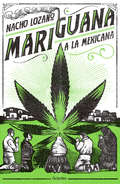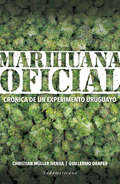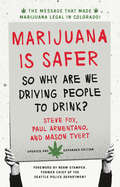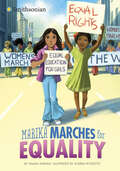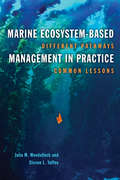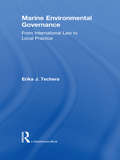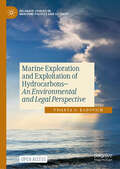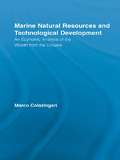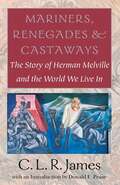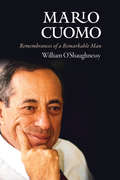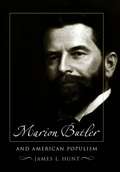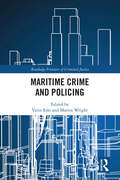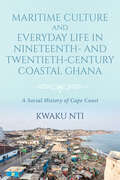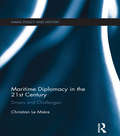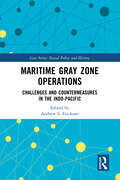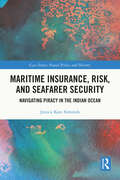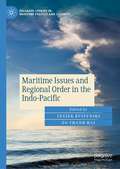- Table View
- List View
Marie Antoinette: The Journey
by Lady Antonia Fraser'Drama, betrayal, religion and sex, it's all here ... Fascinating' GUARDIAN'Beautifully paced, impeccably written ... Don't miss it' INDEPENDENT'Fraser is at her best here, lucid, authoritative and compassionate' SUNDAY TIMES 'Superbly researched ... the definitive work on the ill-fated queen' CATHOLIC HERALDMarie Antoinette's dramatic life-story continues to arouse mixed emotions. To many people, she is still 'la reine méchante', whose extravagance and frivolity helped to bring down the French monarchy; her indifference to popular suffering epitomised by the (apocryphal) words: 'let them eat cake'. Others are equally passionate in her defence: to them, she is a victim of misogyny.Antonia Fraser examines her influence over the king, Louis XVI, the accusations and sexual slurs made against her, her patronage of the arts which enhanced French cultural life, her imprisonment, the death threats made against her, rumours of lesbian affairs, her trial (during which her young son was forced to testify to sexual abuse by his mother) and her eventual execution by guillotine in 1793.
Marie-Antoinette and Count Fersen: The Untold Love Story
by Evelyn FarrA new edition draws on fresh evidence from archive sources--including decoded secret correspondence--to peel back the layers of misinformation obscuring the Queen's great love affair and to reveal its impact on the destiny of the French Royal Family The tragic life of Marie-Antoinette, last Queen of France, has assumed almost mythical proportions. A victim of political intrigue, she was known as the "Austrian whore" and accused of every imaginable sexual and political crime. Yet after the French Revolution she was reinvented as a martyr, and the image of the woman behind the propaganda grew even more distorted. Daughter of the Austrian Empress Maria Theresa, Marie-Antoinette was married at the age of 15 to the heir to the French throne. The vivacious Archduchess had charm and intelligence, while the Dauphin, crowned Louis XVI in 1774, was boorish, gauche, and unable to consummate their marriage. Rebuffed by him, the young girl engaged in a hectic social life and looked elsewhere for love. This book charts her transformation from reckless teenager to dignified yet misunderstood Queen and maps out in detail her enduring relationship with Axel von Fersen. Their liaison, based on deep affection and mutual passion, began long before revolutionary storm clouds gathered over France. Although known to insiders at court, her love for the chivalrous and handsome Swedish Count was suppressed in the many attempts to manipulate the Queen's image.
Marie-Antoinette: The Making of a French Queen
by John HardmanThis “wonderfully gripping biography” digs beneath the famous legend to present a nuanced and revealing portrait of a serious-mined monarch (Allan Massie, Wall Street Journal).As the last Queen of France before the French Revolution, Marie-Antoinette was mistrusted and reviled in her own time, while today she is portrayed as a lightweight incapable of understanding the events that engulfed her. But who was she really? In this new account, John Hardman redresses the balance and sheds fresh light on her story.Hardman shows how Marie-Antoinette played a significant but misunderstood role in the crisis of the monarchy. Drawing on new sources, he describes how she refused to prioritize the aggressive foreign policy of her mother, bravely took over the helm from her faltering husband, and, when revolution broke out, worked closely with repentant radicals to give the constitutional monarchy a fighting chance. For the first time, Hardman demonstrates exactly what influence Marie-Antoinette had and when and how she exerted it.Named a 2020 Book of the Year by The Spectator
Mariguana a la mexicana
by Nacho Lozano¿Qué hace más daño: la mota o la guerra contra la mota? Una nube de mitos, miedo e ignorancia rodea a la mariguana. ¿Pero en realidad qué tanto daño causa? ¿En verdad es ilegal consumirla? ¿Los beneficios que conlleva "compensan" los daños que provoca? Nacho Lozano, con un estilo ágil y riguroso, disecciona en esta obra qué es la mota y cuáles son sus efectos, no sólo en las personas, sino también en la sociedad. De este modo nos recuerda que nadie nunca ha muerto por sobredosis de yerba, que su afectación social es mucho menor que la del tabaco, y cómo es que, hoy en día, sólo cinco mexicanos pueden sembrar, cosechar, transportar y fumar mois... Así, a lo largo de estas páginas, una cuestión va emergiendo: ¿qué implicaría legalizar la mariguana? Y tal vez más importante: ¿cuál es el costo de no hacerlo?
Marihuana oficial: Crónica de un experimento uruguayo
by Christian Muller Guillermo DraperLa historia de un experimento que quedará para la historia, tanto si tiene éxito como si fracasa. Desde que José Mujica recorrió cuarteles para ver dónde podía plantar marihuana hasta que el cannabis echó raíces en un predio estatal pasaron más de tres años y una elección. La venta de la droga en farmacias completa un sistema único que rompe con décadas de prohibición y le disputa al narcotráfico uno de sus mercados.Una investigación periodística con más de cuarenta entrevistados, Marihuana oficial cuenta qué llevó al gobierno de Uruguay a embarcar a un pequeño país en un viaje desconocido. En sus páginas hay narcos, policías, activistas, políticos, empresarios y exguerrilleros; los protagonistas de un experimento que quedará en la historia si tiene éxito y también si fracasa.Desde que José Mujica recorrió cuarteles para ver dónde podía plantar marihuana hasta que el cannabis echó raíces en un predio estatal pasaron más de tres años y una elección. La venta de la droga en farmacias completa un sistema único que rompe con décadas de prohibición y le disputa al narcotráfico uno de sus mercados.Una investigación periodística con más de cuarenta entrevistados, Marihuana oficial cuenta qué llevó al gobierno de Uruguay a embarcar a un pequeño país en un viaje desconocido. En sus páginas hay narcos, policías, activistas, políticos, empresarios y exguerrilleros; los protagonistas de un experimento que quedará en la historia si tiene éxito y también si fracasa.
Marijuana Is Safer
by Steve Fox Paul Armentano Mason TvertNationally recognized marijuana-policy experts Steve Fox, Paul Armentano, and Mason Tvert compare and contrast the relative harms and legal status of the two most popular recreational substances in the world--marijuana and alcohol. Through an objective examination of the two drugs and the laws and social practices that steer people toward alcohol, the authors pose a simple yet rarely considered question: Why do we punish adults who make the rational, safer choice to use marijuana instead of alcohol?Marijuana Is Saferreaches for a broad audience. For those unfamiliar with marijuana, it provides an introduction to the cannabis plant and its effects on the user, and debunks some of the government's most frequently cited marijuana myths. For current and aspiring advocates of marijuana-law reform, as well as anyone else who is interested in what is becoming a major political battle, the authors spell out why the message that marijuana is safer than alcohol must be a prominent part of the public debate over legalization. Most importantly, for the millions of Americans who want to advance the cause of marijuana-policy reform--or simply want to defend their own personal, safer choice--this book provides the talking points and detailed information needed to make persuasive arguments to friends, family, coworkers, and elected officials.
Marijuana: A Short History
by John HudakFrom Reefer Madness to legal purchase at the corner store.With long-time legal and social barriers to marijuana falling across much of the United States, the time has come for an accessible and informative look at attitudes toward the dried byproduct of Cannabis sativa. Marijuana: A Short History profiles the politics and policies concerning the five-leaf plant in the United States and around the world.Millions of Americans have used marijuana at some point in their lives, yet it remains a substance shrouded by myth, misinformation, and mystery. This book offers an up-to-date, cutting-edge look at how a plant with a tumultuous history has emerged from the shadows of counterculture and illegality. Today, marijuana has become a remarkable social, economic, and even political force, with a surprising range of advocates and opponents. Public policy toward marijuana, especially in the United States, is changing rapidly. Marijuana: A Short History provides a brief yet compelling narrative that discusses the social and cultural history of marijuana but also tells us how a once-vilified plant has been transformed into a serious, even mainstream, public policy issue. Focusing on politics, the media, government, and education, the book describes why public policy has changed, and what that change might mean for marijuana's future place in society.
Marika Marches for Equality (Smithsonian Historical Fiction)
by Salima AlikhanMiddle-schooler Marika is caught between two worlds. She and her friend Beth are passionate about women’s rights, and they plan to join a national rally to support the cause. But it’s 1970, and the equal rights movement has a lot of resistance—including from Marika’s parents. Marika wishes they were as supportive of equal rights as Beth’s parents, but Marika’s parents seem content with how things are. As the day of the Women’s Strike for Equality approaches, will Marika convince her parents to support her beliefs?
Marine Ecosystem-Based Management in Practice: Different Pathways, Common Lessons
by Julia M. Wondolleck Steven Lewis YaffeeWhat are the key ingredients of successful marine ecosystem planning? The surprising answer, according to authors Julia Wondolleck and Stephen Yaffee, is that a successful approach calls for more than just sound organizational structure and resources, but also a comfortable atmosphere of trust, understanding, and collaboration.Marine Ecosystem-Based Management in Practice is the first practical guide for the marine conservation realm. In a unique collection of case studies, the authors showcase successful collaborative approaches to ecosystem-based management. This book offers a hopeful message to policy makers, managers, practitioners, and students who will find this an indispensable guide to field-tested, replicable marine conservation management practices that work.
Marine Environmental Governance: From International Law to Local Practice
by Erika TecheraMarine Environmental Governance: From International Law to Local Practice considers the relationship between international environmental law and community-based management of marine areas. Focusing on small island states, in which indigenous populations have to a large extent continued to maintain traditional lifestyles, this book takes up the question of how indigenous customary law and state-based legislation can be reconciled in the implementation of international environmental law. Including a range of case studies, as well as detailed comparative analysis, it pursues an interdisciplinary approach to legal pluralism 'in practice' that will be of considerable interest to environmental lawyers, legal anthropologists, conservation biologists and those working in the area of community-based conservation.
Marine Exploration and Exploitation of Hydrocarbons: An Environmental and Legal Perspective (Palgrave Studies in Maritime Politics and Security)
by Violeta S. RadovichThe book analyzes the environmental regulation of upstream marine exploration and exploitation of hydrocarbons, at the international, regional MERCOSUR and Argentine national level. It uses the concept of normative integration as a methodological approach, critically assessing the interaction between the law of the sea, maritime law, environmental law and human rights law in the field of study. The book analyses the legal framework in a timeline, giving context to the evolution of the different branches of international law with sparkles of history. In this sense, the book also analyses international conventions’ bills on the subject that have not entered into force. The manuscript focuses on the reports from two marine pollution events (Deepwater Horizon and Montara oil spills) to analyse the lessons learnt and the normative and institutional framework needed to ensure environmental safety in the marine exploration and exploitation of hydrocarbons. The book critically analyses marine platform accidents’ official reports comprehensively in order to assess existing normative and institutional frameworks and to give a way forward regarding policies. The manuscript contributes to rethinking the governance of the ocean at the time of environmental challenges. In that context, it refers to the concept of normative integration and effectiveness. It takes the existing scholarship further by introducing the notion of “marine platforms” instead of “offshore platforms” to rethink the relationship between land and sea and to develop a functional approach to enhance existing regulations. This is an open access book.
Marine Natural Resources and Technological Development: An Economic Analysis of the Wealth from the Oceans (Routledge Studies in Development and Society #Vol. 14)
by Marco ColazingariThis book offers a comprehensive and systematic examination of the issues involved within Ocean Economics. The oceans are the last frontier on Earth, and research and exploration are key to developing and enhancing global economic activity that is necessary to sustain a growing human population. Colazingari pinpoints the contentious issues relevant to oceans’ natural resources management and protection. He examines the cutting edge technology used for the exploration of the oceans’ living and non living resources (fisheries, bio-products, energy resources, mineral deposits) and identifies the significant emerging patterns that will determine the development of ocean economics in the future. Problems require timely action by politicians and policymakers at an international level, while scientists and researchers must assist in providing reliable information and investigating viable options. With writing that is straightforward but comprehensive, this book will appeal to professionals, academics, students, as well as anyone interested in marine environment.
Marine One
by James W. HustonAn attorney and Marine veteran must unravel a deadly conspiracy in this explosive legal thriller by a New York Times–bestselling author.The President rushes across the South Lawn through a pounding thunderstorm to board Marine One and fly to Camp David late at night. Advisors plead with him not to go—but he insists. He has arranged a meeting that only three people in his administration know about. But he never gets there. Marine One crashes into a ravine, killing all aboard . . .The government accuses the French helicopter manufacturer of killing the president. Senate Investigations and Justice Department accusations multiply as Mike Nolan, a trial attorney and a Marine Corps reserve helicopter pilot, is hired to defend the company against a wrongful death lawsuit brought by the First Lady.Now Nolan must find out what really caused Marine One to crash, and why the president threw caution aside to attend a secret meeting. To clear his client, Nolan must win the highest-profile trial of the last hundred years with very little working for him and many working against him—intent on stopping him at any cost . . .Praise for Marine One“Bestseller Huston . . . grabs the reader by the lapels with the opening sentence of the first chapter of this outstanding thriller. . . . This is nonstop legal suspense at its best.” —Publishers Weekly (starred review)“This gripping thriller opens with a bang. . . . The author smoothly combines the political-conspiracy and courtroom-drama formats, and he nicely explores the story’s fundamental moral quandary. . . . The book has echoes of Michael Crichton’s Airframe.” —Booklist
Mariners, Renegades and Castaways: The Story of Herman Melville and the World We Live In (Reencounters With Colonialism--New Perspectives on the Americas)
by C. L. R. JamesPolitical theorist and cultural critic, novelist and cricket enthusiast, C. L. R. James (1901 - 1989) was a brilliant polymath who has been described by Edward Said as "a centrally important 20th-century figure." Through such landmark works as The Black Jacobins, Beyond a Boundary, and American Civilization, James's thought continues to influence and inspire scholars in a wide variety of fields. "There is little doubt," wrote novelist Caryl Phillips in The New Republic, "that James will come to be regarded as the outstanding Caribbean mind of the twentieth century." In his seminal work of literary and cultural criticism, Mariners, Renegades and Castaways, James anticipated many of the concerns and ideas that have shaped the contemporary fields of American and Postcolonial Studies, yet this widely influential book has been unavailable in its complete form since its original publication in 1953. A provocative study of Moby Dick in which James challenged the prevailing Americanist interpretation that opposed a "totalitarian" Ahab and a "democratic, American" Ishmael, he offered instead a vision of a factory-like Pequod whose "captain of industry" leads the "mariners, renegades and castaways" of its crew to their doom. In addition to demonstrating how such an interpretation supported the emerging US national security state, James also related the narrative of Moby Dick, and its resonance in American literary and political culture, to his own persecuted position at the height (or the depth) of the Truman/McCarthy era. It is precisely this personal, deeply original material that was excised from the only subsequent edition. With a new introduction by Donald E. Pease that places the work in its critical and cultural context, Mariners, Renegades and Castaways is once again available in its complete form.
Mario Cuomo: Remembrances of a Remarkable Man
by William O'ShaughnessyA personal, behind-the-scenes look at a Democratic iconGovernor Mario Cuomo’s life and accomplishments are part of the public record, but in Mario Cuomo: Remembrances of a Remarkable Man, William O’Shaughnessy gives readers an exclusive and a deeply personal, behind-the-scenes look at the liberal Democratic icon. This poignant memoir, based on the author’s thirty-eight-year friendship with Governor Cuomo, portrays the spiritual journey of a man who played many roles: inspirational political leader, moral compass, spellbinding orator, gifted author, legal scholar, and loving father and grandfather. He was, in O’Shaughnessy’s words, one of the most articulate and graceful public men of the twentieth century.
Marion Butler and American Populism
by James L. HuntExploring the life and leadership of Populist Marion Butler (1863-1938), James Hunt offers new insight into the challenges of American reform politics. The son of North Carolina farmers and a graduate of the University of North Carolina, Butler displayed an early proclivity for agrarian reform. By age twenty-eight he led the Farmers' Alliance of North Carolina; two years later he was elected president of the national Alliance. Butler served in the U.S. Senate as a Populist from 1895 to 1901 and was chairman of the national Populist Party during the critical presidential elections of 1896 and 1900. In 1896 he helped engineer the remarkable collaboration in which Populist Tom Watson ran for vice president alongside Democratic presidential nominee William Jennings Bryan.Departing from earlier portrayals of Butler as a political opportunist, Hunt shows him to be a genuine reformer who upheld Populist tenets in the face of enormous opposition from Democrats, Republicans, and even members of his own party. A dynamic individual with enormous capacity to mobilize and motivate, Butler sought throughout his career to convert his reform ideals, through politics, into law. His long and, ultimately, losing efforts illuminate the limitations of Populism as an ideology and as a political movement.
Mariposa (Quantico #2)
by Greg BearThe world just keeps getting tougher and more complicated. America teeters on the edge of bankruptcy because of crushing foreign debt and an apparent savior, The Talos Corporation, delivers training for soldiers and security forces around the world, logistical support and badly-needed troops economically, but with a hidden cost that&’s both sinister and disturbing.The three rookie FBI agents who survived the challenges portrayed in Quantico, have gone their separate ways but seem fated to be drawn back together in an alliance against a surprising challenge for which no one seems prepared. Rebecca Rose is brought back from an extended sabbatical when the President is shot and her second-in-command is implicated in an horrific crime—and all the threads point deeper into Talos&’s secretive activities. Fouad Al-Husam, working undercover inside Talos, has uncovered and been forced to hide vital information of a takeover plot that threatens America&’s independence.Nathan Trace, victim of a violent incident in the Middle East, struggles with post-traumatic stress and seems to be recovering through participation in a treatment program, code-named Mariposa, which has unexpected side-effects that turn patients into brilliant, detached and sociopathic individuals—very smart and extremely deadly.Only a desperate combination of misfits and survivors can combat an apparently inevitable collapse of American organization that will lead to the fall of democracy.
Mariposa (Quantico #2)
by Greg BearThe world just keeps getting tougher and more complicated. America teeters on the edge of bankruptcy because of crushing foreign debt and an apparent savior, The Talos Corporation, delivers training for soldiers and security forces around the world, logistical support and badly-needed troops economically, but with a hidden cost that&’s both sinister and disturbing.The three rookie FBI agents who survived the challenges portrayed in Quantico, have gone their separate ways but seem fated to be drawn back together in an alliance against a surprising challenge for which no one seems prepared. Rebecca Rose is brought back from an extended sabbatical when the President is shot and her second-in-command is implicated in an horrific crime—and all the threads point deeper into Talos&’s secretive activities. Fouad Al-Husam, working undercover inside Talos, has uncovered and been forced to hide vital information of a takeover plot that threatens America&’s independence.Nathan Trace, victim of a violent incident in the Middle East, struggles with post-traumatic stress and seems to be recovering through participation in a treatment program, code-named Mariposa, which has unexpected side-effects that turn patients into brilliant, detached and sociopathic individuals—very smart and extremely deadly.Only a desperate combination of misfits and survivors can combat an apparently inevitable collapse of American organization that will lead to the fall of democracy.
Marital Privilege: Marriage, Inequality, and the Transformation of American Law (Yale Law Library Series in Legal History and Reference)
by Serena MayeriHow the privileged legal status of marriage survived decades of constitutional struggle and social change The United States is unusual among wealthy western nations in the degree to which the law channels public benefits and private economic resources through marriage. This remains so despite seismic changes in American family life in the last several decades of the twentieth century. During this period, marriage rates declined while divorce and nonmarital childbearing soared. Social movements—for racial and economic justice, women&’s and gay rights and liberation, civil liberties, and reproductive freedom—transformed the legal landscape. In Marital Privilege, Serena Mayeri tells the stories of parents and partners, activists and lawyers who challenged the legal primacy of marriage. They made innovative constitutional claims in courts and launched grassroots efforts to change laws and practices that penalized nonmarital relationships. But even though reforms eliminated the most visible discrimination against women, people of color, and children born to unmarried parents—and, eventually, against gay and lesbian Americans—marriage&’s privileged status endured. Because marriage increasingly correlated with education and wealth, marital primacy intensified racial and economic inequality. Marital Privilege explains how, as American law selectively incorporated principles of liberty and equality, the benefits of marriage became increasingly unavailable to those who needed them most.
Maritime Crime and Policing (Routledge Frontiers of Criminal Justice)
by Martin Wright Yarin EskiThis book offers a unique and scholarly perspective on a little-studied subject: maritime crime and policing. The seas and oceans cover 70 percent of the earth’s surface and 90 percent of world trade by volume travels by sea. Furthermore, the refugee crisis has produced an inflow of people attempting to find a better life, particularly in Northwest Europe and the UK, which has had an impact on the maritime domains of European ports. While there has been attention paid to the role of maritime policing by scholars in maritime security studies, little attention has been paid by criminologists and policing studies scholars. This book aims to fill this gap. Bringing together a range of international scholars, this book covers a variety of topics pertinent to maritime crime and its policing, such as fraud, piracy and armed robbery at sea, illegal and unregulated fishing, smuggling, people trafficking, illegal immigration, illegal dumping and pollution, arms trafficking, terrorism, and cargo theft. It brings together new perspectives on several key criminological themes such as transnational organised crime, criminalisation, and securitisation and provides a bold new direction for the landlocked discipline of criminology and policing studies. An accessible and compelling read, this book will be of interest to students and scholars of criminology, policing, sociology, politics, migration studies, and all those interested in the policing of the sea.
Maritime Culture and Everyday Life in Nineteenth- and Twentieth-Century Coastal Ghana: A Social History of Cape Coast
by Kwaku NtiThe communities along the coastline of Ghana boast a long and vibrant maritime culture. In the nineteenth and early twentieth centuries, the region experienced creeping British imperialism and incorporation into the British Gold Coast colony. Drawing on a wealth of Ghanian archival sources, historian Kwaku Nti shows how many aspects of traditional maritime daily life—customary ritual performances, fishing, and concepts of ownership, and land—served as a means of resistance and allowed residents to contest and influence the socio-political transformations of the era. Nti explored how the Ebusua (female) and Asafo (male) local social groups, especially in Cape Coast, became bastions of indigenous identity and traditions during British colonial rule, while at the same time functioning as focal points for demanding a share of emerging economic opportunities. A convincing demonstration of the power of the indigenous everyday life to complicate the reach of empire, Maritime Culture and Everyday Life in Nineteenth- and Twentieth-Century Coastal Ghana reveals a fuller history of West African coastal communities.
Maritime Diplomacy in the 21st Century: Drivers and Challenges (Cass Series: Naval Policy and History)
by Christian Le MièreThis book aims to redefine maritime diplomacy for the modern era. <P><P>Maritime diplomacy encompasses a spectrum of activities, from co-operative measures such as port visits, exercises and humanitarian assistance to persuasive deployment and coercion. It is an activity no longer confined to just navies, but in the modern era is pursued be coast guards, civilian vessels and non-state groups. As states such as China and India develop, they are increasingly using this most flexible form of soft and hard power. <P><P>Maritime Diplomacy in the 21st Century describes and analyses the concept of maritime diplomacy, which has been largely neglected in academic literature. The use of such diplomacy can be interesting not just for the parochial effects of any activity, but because any event can reflect changes in the international order, while acting as an excellent gauge for the existence and severity of international tension. Further, maritime diplomacy can act as a valve through which any tension can be released without resort to conflict. Written in an accessible but authoritative style, this book describes the continued use of coercion outside of war by navies, while also situating it more clearly within the various roles and effects that maritime forces have in peacetime. <P><P>This book will be of much interest to students of seapower, naval history, strategic studies, diplomacy and international relations.
Maritime Gray Zone Operations: Challenges and Countermeasures in the Indo-Pacific (Cass Series: Naval Policy and History)
by Andrew S. EricksonThis book addresses the issues raised by Chinese and North Korean maritime ‘gray zone’ activities in the Indo-Asia-Pacific region. For years, China has been harassing its neighbors in South China Sea and East China Sea, employing both coast guard and maritime militia forces, in the name of safeguarding Chinese sovereignty. This behavior is frequently characterized as constituting ‘gray zone’ activity. As the term suggests, this refers to a state of conflict that falls between peace and war. Interestingly, the Yellow Sea, which is geographically much closer to China than South China Sea or East China Sea, has been comparatively quiet. However, there is a danger that the PRC has the capability to replicate its gray zone activities in this area. Worse, North Korea has also been engaging in carefully-calibrated provocations there. This book addresses pressing questions about these activities and offers: (1) a conceptual framework to understand maritime gray zone operations and Beijing and Pyongyang’s approach, with an unprecedented focus on the Yellow Sea; (2) a comprehensive, fully updated fleet force structure for the PRC’s Coast Guard, together with projections regarding how the Coast Guard is likely to develop in the future; (3) an extensive organizational analysis of the PRC’s Maritime Militia that surveys the many units relevant to Yellow Sea operations, some revealed publicly for the first time; and (4) a detailed assessment of North Korean maritime ‘gray zone’ activities. This book will be of great interest to students of naval strategy, maritime security, Asian politics, and international security.
Maritime Insurance, Risk, and Seafarer Security: Navigating Piracy in the Indian Ocean (Cass Series: Naval Policy and History)
by Jessica Kate SimondsThis book explores the complex interplay between maritime insurance and piracy in the Indian Ocean, a crucial global trade route.Drawing on rich oral histories, this work delves into the lives of seafarers and insurance experts who confront the harsh realities of Somali piracy. Through a series of compelling case studies, including the notorious Maersk Alabama hijacking, the book sheds light on the evolving role of maritime insurers as they navigate the precarious waters of risk management. It highlights how these companies not only provide financial protection but also shape maritime security practices, transforming the sea into a managed space of governance. Spanning a geographical range from the Horn of Africa to global maritime hubs, the book emphasises the human cost of piracy and the often-overlooked experiences of those at sea. Bridging between historical cases and contemporary challenges, the book advocates a deeper understanding of the maritime landscape. Furthermore, by exploring the perspectives of seafarers, the book provides a unique insight into the emerging challenges faced at sea and the importance of safety in moments of maritime insecurityThis book will be of much interest to students of maritime security, naval policy, the history of insurance, and international relations.
Maritime Issues and Regional Order in the Indo-Pacific (Palgrave Studies in Maritime Politics and Security)
by Do Thanh Hai Leszek BuszynskiThis edited volume examines the political and security issues influencing and shaping the developing maritime order in the Indo Pacific. If focuses specifically on the impact of China’s maritime expansion upon the policies and strategies of the regional states as well as the major players. The chapters examine the interaction of these players, paying particular attention to Japan, as the originator of the Indo Pacific idea and promoter of security cooperation and regionalism. It also covers the responses of the ASEAN claimants, Vietnam, Malaysia, the Philippines as well as Indonesia, alongside the key players, India, the US and also the EU.



